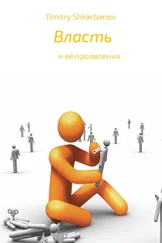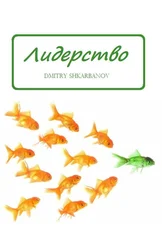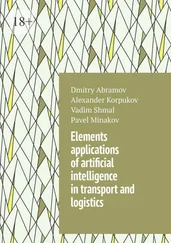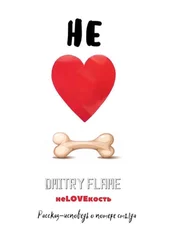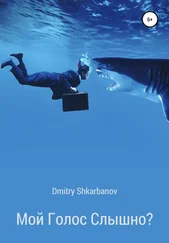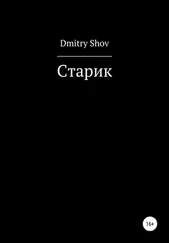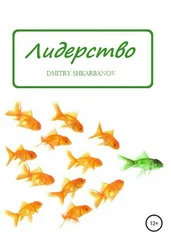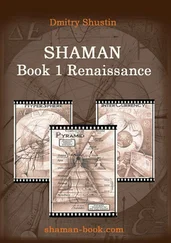And then suddenly a picture appeared in front of her eyes for a moment: tall buildings, a green sky, clouds scudding along, people laughing. And the hot, wet drops on her cheeks seemed like drops of that summer rain the old man had told her about. A second later the apparition disappeared, leaving only a light, magical mood behind.
‘I want a miracle,’ Sasha told herself stubbornly, biting on her lower lip.
And immediately a tumbler switch clicked loudly in the corridor, and the cell was flooded with unbearably bright light.
A blissful aura of peace and prosperity extended out for dozens of metres from the entrance to the marble shrine that was the sacred capital of the Metro – together with the white radiance of the mercury lamps. They weren’t sparing with light in Polis, because they believed in its magic. An abundance of light reminded people of their former lives, of those distant times when man was not yet a night animal, not yet a predator. And even barbarians from the periphery behaved with restraint here.
The checkpoint on the border of Polis was more like the front entrance of an old Soviet ministry than an armoured guard post: a table, a chair, two officers in clean staff uniforms, wearing their peaked caps. A check of documents, an inspection of personal effects. The old man fished his passport out of his pocket. Visas had supposedly been abolished, so there shouldn’t be any problems. He handed the little green folder to an officer and squinted sideways at the brigadier. Absorbed in his own thoughts, Hunter didn’t seem to have heard the border guard’s question. And did he have passport in any case, Homer wondered doubtfully. But if he didn’t, what had he been hoping for, hurrying here so fast?
‘I’m asking you for the last time,’ said the officer, placing one hand on his gleaming holster, ‘present your documents or leave Polis territory immediately!’
Homer wasn’t sure if the brigadier still hadn’t understood what they wanted from him and simply reacted to the movement of the fingers creeping towards the press stud of the holster. Instantly emerging from his strange dormant state, Hunter flung his open hand forward with lightning speed, staving in the sentry’s Adam’s apple. The man wheezed, turned blue and collapsed flat on his back, together with his chair. The other man tried to bolt, but the old man knew he wouldn’t make it. The implacable burnished pistol appeared in Hunter’s hand like an ace out of a cardsharp’s sleeve and…
‘Wait!’
The brigadier hesitated for a second, and that was enough for the fleeing soldier to scramble out onto the platform, go tumbling over and hide from the bullets.
‘Leave them! We have to get to Tula! You must… You asked me to remind you… Wait!’ The old man gasped for breath, not knowing what to say.
‘To Tula…’ Hunter repeated dully. ‘Yes, best to be patient until we get to Tula. You’re right.’ He sank down heavily onto a chair, put his heavy revolver down beside him and lowered his head. Seizing the moment, Homer raised his hands in the air and ran forward towards the guards who were darting out of the archways.
‘Don’t shoot! He surrenders! Don’t shoot! In the name of all that’s holy…’
But even so they twisted his arms behind his back and hurriedly tore off his respirator before allowing him to explain. The brigadier, who had fallen back into his strange lethargy, didn’t interfere. He allowed them to disarm him and walked submissively through into the holding cell. He sat down on a bunk, looked up, found the old man and gasped out:
‘You need to find a certain man here. He’s called Miller. Bring him here. I’ll wait…’
Homer nodded, fastidiously gathered up his things and started squeezing his way through the sentries and curious bystanders crowding round the door, when suddenly he heard his name called.
‘Homer!’
The old man froze in astonishment: Hunter had never called him by name before. He walked back to the lengths of reinforcing rods welded into unconvincing prison bars and looked enquiringly at Hunter, who was hugging himself with his massive hands, as if he were shivering with cold. And the brigadier spoke to him in a dull, lifeless voice:
‘Not for long.’
The door opened and a soldier looked in timidly – the same one who had lashed the musician across the face several hours earlier. A kick in the backside sent him flying into the cell and he almost tumbled over onto the floor, then straightened up and looked round uncertainly.
A lean-bodied soldier wearing glasses was standing in the doorway. The shoulder tabs on his tunic were covered with stars, his sparse, light-brown hair was sleeked back.
‘Gone on, you dumb beast,’ he hissed.
‘I… It’s…’ the border guard bleated.
‘Don’t be shy,’ the officer encouraged him.
‘I apologise for what I did. And you… you… I can’t do it.’
‘That’s an extra ten days.’
‘Hit me,’ the soldier said to Leonid, not knowing which way to look.
‘Ah, Albert Mikhailovich!’ said the musician, screwing up his eyes and smiling. ‘I was starting to get tired of waiting.’
‘Good evening,’ said the officer, also hitching up the corners of his lips. ‘See, I’ve come to restore justice. Are we going to take our revenge?’
‘I have to take care of my hands,’ said the musician, getting up and kneading his waist. ‘I think you can punish him.’
‘With all due severity,’ said Albert Mikhailovich, nodding. ‘A month in the guardhouse. And naturally, I add my apologies to this blockhead’s.’
‘Well, don’t get too spiteful with him,’ said Leonid, rubbing his bruised jaw.
‘Is this going to remain just between the two of us?’ The officer’s metallic voice grated treacherously, giving him away.
‘As you can see, I’m smuggling something out,’ the musician said with a brief nod in Sasha’s direction. ‘Can you relax the rules a bit?’
‘We’ll arrange it,’ Albert Mikhailovich promised.
They left the guilty border guard right there in the cell: after closing the bolt, the officer led them along a narrow corridor.
‘I won’t go any further with you,’ Sasha told the musician in a loud voice.
‘What if I told you that we really are going to that Emerald City?’ Leonid asked her after a moment’s pause, speaking in a voice so low she could barely hear it. ‘If I told you it’s no accident that I know more about it than your granddad? That I’ve seen it for myself, and not just seen it? That I’ve been there, and not just there…’
‘You’re lying!’
‘You know what?’ Leonid asked her angrily. ‘When you ask for a miracle, you have to be prepared to believe in it. Or you’ll miss it when it comes.’
‘And you also have to know how to tell miracles from conjuring tricks,’ Sasha snarled back. ‘You taught me that.’
‘I knew from the very beginning that they’d let us go,’ he replied. ‘It’s just that I didn’t want to hurry things.’
‘You just wanted to drag things out and waste time!’
‘But I wasn’t lying to you. There is a cure for the disease!’
They reached the frontier post. The officer, who had occasionally looked round at them curiously, handed the musician his belongings and returned his cartridges and documents.
‘Right then, Leonid Nikolaevich,’ he said, saluting. ‘Are we taking the contraband with us or leaving it with the customs?’
‘Taking it.’
‘In that case, peace and blessings upon you both,’ said Albert Mikhailovich. He accompanied them past a triple row of fortifications, past teams of machine-gunners who leapt up off their seats, past metal grilles and tank traps welded together out of rails. ‘I suppose no problems will arise with importation?’
Читать дальше


